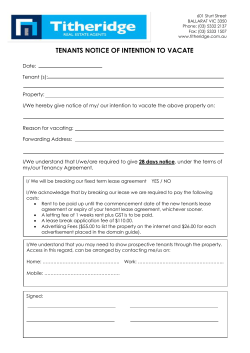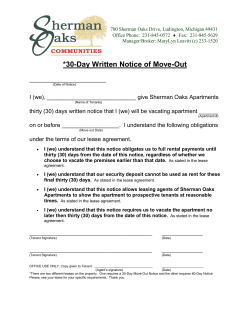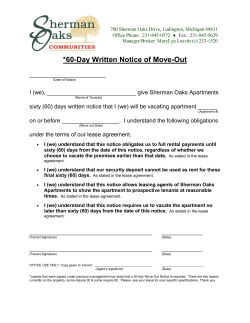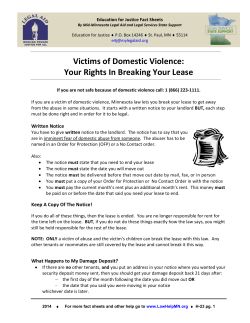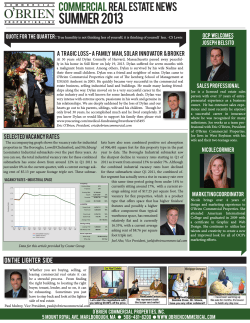
Leasing vs. Buying
Leasing vs. Buying Cars do not hold their value well. Should you lease instead? Not necessarily. Cars, especially new cars, are terrible investments. You sink money into them for gas, wear and tear, and then watch their resale value tick down every year. At the end you are left with aging wheels, soon to need repairs. So you should lease instead, and get a new one every few years, right? Not necessarily. When you lease you also sink money into a car, have to pay if you go over the miles allowed by your lease, are responsible for damage to the vehicle, and pay for something you never own. Knowing this, we investigated which choice makes more sense. Not surprisingly, there is no one size fits all answer but there are some general guidelines. If you don’t drive too much, and appreciate having a newer vehicle, leasing can make sense. If you plan to hold your car a long time and drive it a lot, buying is typically the better value. When you lease, you don’t own the vehicle and must return it at the end of the lease. Then you have an opportunity to buy it from the lender based on a pre-calculated “residual payoff”—i.e. the amount the lender says the car is worth at the end of your lease term. The size of this residual payoff is written into the lease contract before you sign it. You may also have upfront costs including: first month’s payment, a refundable security deposit, taxes, registration and other fees. When you buy, your upfront costs can include: the cash price or down payment, taxes and registration. Typically you either pay for it upfront or secure a multi-year loan. The two largest variables involved in whether to buy or lease are how long you plan to have the car, and how much you drive, says Norman Walker, vice president director of marketing at Sam Swope Auto Dealers in Louisville, Kentucky. “Generally speaking, if you keep your car five to six years, purchasing is the way to go,” he says. “If you switch cars every two to three years, leasing is probably the way to go.” Buying becomes a better deal over time because eventually when you pay off your car loan, you then only have to pay for whatever repairs and maintenance it requires in addition to the normal cost of driving. Also you get the benefit of whatever dollar value the car has at the end; although cars can go down dramatically in price as they age. When you buy, you take a calculated risk on what the market value of the car will be when you do sell it. Walker says leasing takes away some of this mystery. If you negotiate a four year lease you know exactly how much it will cost every month, like with a loan, but you will also know exactly how much the residual value of the car is left at the end of your lease term—it will be in your contract. At that point, you will have the option of buying the car and you can either get a deal or not. The car could be worth more than what the residual value was calculated to be by the lender. When that happens, the customer wins. If the residual value of the car is higher than the market value, the lease owner would be wise to then walk away. The other major factor is how much you drive, says Richard Goss, manager of indirect auto lending at Republic Bank. Goss says customers who typically drive in the area of 12,000 miles a year are good candidates to lease. At that point, the price of the lease is quite competitive with a car loan and you can upgrade in just a few years. The danger comes, Goss says, when customers claim on their lease that they only want to drive a certain amount, say 12-15,000 miles a year, secure a cheap lease, and then drive 20,000 miles a year. At that point, you end up paying for the extra miles at the end of your lease and it becomes a far worse value. Often this comes because customers don’t take the time to understand the lease terms. You also should not have excessive wear and tear on a leased car, Goss says. This can be a somewhat nebulous term, but basically you will pay for any real damage accrued to the car during the time it is leased. Even worse, when the dealer fixes these repairs, you, the lease holder, will pay retail rates for the work done. In other words, a mom with four little Kool-aid spilling kids may not be a great candidate to lease a car. Conversely, it makes a world of sense to buy the car if you hold onto your vehicles for a long time, and drive a whole lot, says Goss. This way, you get the full value of the vehicle’s sticker price over a series of many years and you don’t have to worry about exceeding your allotted miles-per-year. Leasing is also a problem if you sign, say, a four year lease and get sick of the car after three. When you own the car you can trade it in or sell it. When you lease it you are stuck by the terms of the lease, which are extremely hard to void. A third option could be the best value of all, buying a used car, because the immediate value of driving the new car off the lot has been already calculated. Swope’s Walker says one irony is that in a down economy, such as the current one, used car prices rise because they are more in demand. At the same time, new car prices fall, because their demand falls. Still, should times remain bad, and you maintain your car well, this also means you will fetch a better price for your used vehicle when you are ready to either sell it or trade it in. Walker says that over time some imported cars have maintained their value more than most domestic models, although he sees that gap narrowing slightly. This information is not a solicitation nor is it to be used as investment advice; it is for informational purposes only. This information is not to be relied upon in connection with any investment decision. You should always seek independent professional advice about specific financial decisions. Republic Bank disclaims all and any responsibility or liability with respect to the information either detailed or omitted (or the consequences thereof) and assumes no responsibility to update the information. IRS Circular 230 disclosure: To ensure compliance with requirements imposed by the IRS, we inform you that any tax advice contained in this communication (including any attachments) was not intended or written to be used, and cannot be used, for the purpose of (i) avoiding penalties under the Internal Revenue Code or (ii) promoting, marketing or recommending to another party any transaction or matter addressed herein. Republic Bancorp, Inc. (Republic) has 43 banking centers and is the parent company of Republic Bank & Trust Company and Republic Bank. Republic Bank & Trust Company has 35 banking centers in 13 Kentucky communities - Bowling Green, Covington, Crestwood, Elizabethtown, Florence, Frankfort, Georgetown, Independence, Lexington, Louisville, Owensboro, Shelbyville and Shepherdsville and three banking centers in southern Indiana – Floyds Knobs, Jeffersonville and New Albany. Republic Bank has banking centers in Hudson, Palm Harbor, Port Richey and Temple Terrace, Florida as well as Cincinnati, Ohio. Republic operates Tax Refund Solutions, a nationwide tax refund loan and check provider. Republic offers internet banking at www.republicbank.com. Republic has $3.1 billion in assets and $1 billion in trust assets under custody and management. Republic is headquartered in Louisville, Kentucky and Republic's Class A Common Stock is listed under the symbol “RBCAA” on the NASDAQ Global Select Market. We were here for you yesterday. We are here for you today. We will be here for you tomorrow. ®
© Copyright 2025

